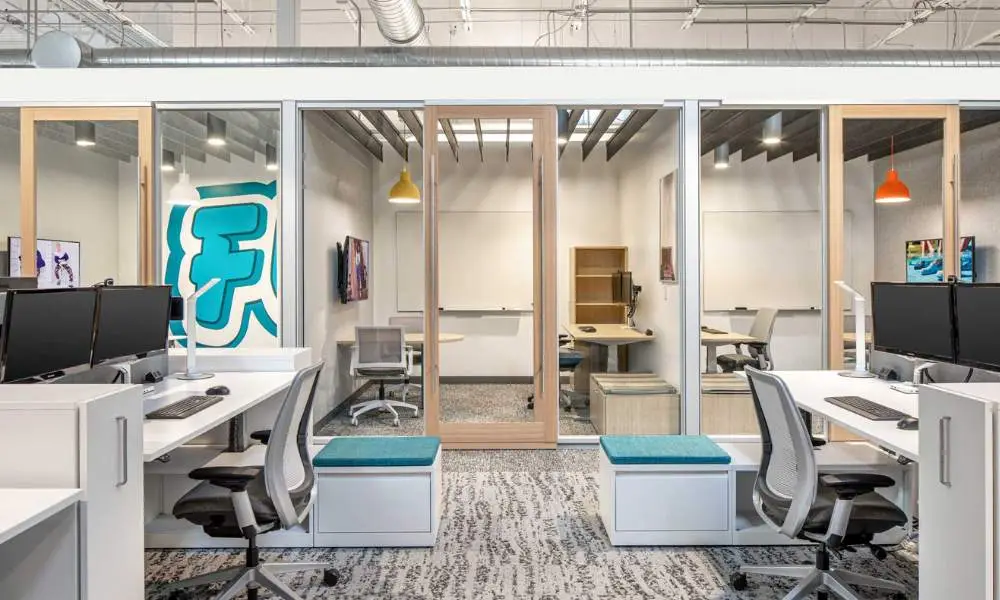
As an Amazon Associate I earn from qualifying purchases.
by ElenaStyle

As an Amazon Associate I earn from qualifying purchases.
Thinking of slipping into Crocs for those marathon workdays? Before you do, consider if they’re even allowed in your workspace. Dress codes can be as varied as the jobs we do—some places demand your Sunday best, while others are cool with whatever keeps your toes happy.
So, can you strut into your office wearing Crocs? It all boils down to what your company’s rulebook says. Let’s dive into the love-hate relationship employers have with Crocs at work.
For some, Crocs are a big no-no, breaking every style rule in the book. Yet, in other circles, they’re seen as the holy grail of foot comfort.
The debate over Crocs as professional attire rages on. Are they a fashion faux pas worth making? I’ve turned to Crocs for just about everything in my daily grind, and now I’m here to debunk the myths and spill the beans on whether you can rock them at work.
So, stick around—your feet might just thank you!
People who choose to wear Crocs to work do so for several reasons, depending on their unique situation and needs:
Crocs are famously light and bend with your foot, reducing fatigue and discomfort from standing or walking for long periods.
No laces or buckles make slipping into and out of Crocs effortless, saving time and hassle throughout the day.
The perforated design allows for airflow, preventing sweaty feet, and they’re easily cleaned with soap and water, ideal for messy or humid work environments.
Some Crocs styles offer good grip and slip resistance, essential for safety in certain workplaces like kitchens or healthcare settings.
Crocs are known for their resilience and can withstand wear and tear for a long time, making them a cost-effective choice.
For jobs involving spills or wet environments, Crocs repel water and dry quickly, keeping your feet comfortable.
Some prioritize comfort and practicality over a traditional office look, finding Crocs comfortable for their specific needs.
In workplaces with relaxed dress codes, Crocs can fit in seamlessly without clashing with professional attire.
With a wide variety of colors and styles available, Crocs can add a touch of personality and flair to one’s work outfit.
Additionally, certain professions may find Crocs particularly beneficial:
Also read: Are Crocs Good for Bunions?
Whether it’s acceptable to wear Crocs to work largely depends on the workplace’s dress code and the nature of the job.
In environments where professional or formal attire is expected, or where safety is a concern, such as in a laboratory or construction site, Crocs might not be appropriate.
However, in more casual settings, creative fields, or when the job involves a lot of standing or walking, Crocs could be considered acceptable due to their comfort.
It’s always best to refer to your workplace’s dress code policy or consult with a supervisor or HR to make the most appropriate choice for your specific work environment.

OSHA doesn’t have specific guidelines for open-heeled shoes, but it does have regulations for personal protective equipment and protective footwear. OSHA also doesn’t specify which brands of shoes can or can’t be worn.
However, some say that Crocs aren’t slip-resistant, which may be an OSHA hazard. For example, some say that regular Crocs with ventilation holes aren’t considered closed-toe shoes and don’t have slip-resistant outsoles.
Every health and safety department has its own safety shoe criteria and requirements. For example, some say that most food service jobs allow Crocs as long as they meet certain safety requirements, like being closed-toe and slip-resistant.
OSHA compliant safety shoes must meet certain performance requirements, including:

Several types of work environments might allow or even be ideal for wearing Crocs, depending on the specific style and the workplace’s needs:
| Work Environment | Description |
|---|---|
| Tech startups | Many tech companies embrace casual dress codes, and Crocs’ comfort and ease can be perfect for a relaxed environment. |
| Creative agencies | Similar to tech companies, creative agencies often prioritize comfort and individual expression, making Crocs a viable option. |
| Retail sales | If your role allows for casual attire and doesn’t involve heavy lifting or safety hazards, Crocs can offer comfort during long shifts on your feet. |
| Customer service | In casual customer service settings, closed-toe and professional-looking Crocs can provide comfort while maintaining a friendly and approachable look. |
| Work Environment | Description |
|---|---|
| Healthcare | Certain Crocs styles offer closed toes, slip resistance, and easy cleaning, making them suitable for nurses, therapists, or other healthcare professionals who prioritize comfort and hygiene. |
| Hospitality | Similar to healthcare, closed-toe and slip-resistant Crocs can be ideal for waiters, waitresses, and bartenders who need comfortable footwear on busy floors. |
| Restaurant kitchens | Some Crocs styles offer heat resistance and water-resistant features, making them suitable for chefs and kitchen staff who work in busy and potentially messy environments. |
| Gardening or landscaping | Crocs’ easy cleaning and water-resistant qualities make them perfect for outdoor work in wet or muddy conditions. |
| Work Environment | Description |
|---|---|
| Work-from-home | When comfort is king and no professional presentations or client meetings are involved, Crocs can be a comfortable option for your home office. |
| Specific tasks | For certain tasks within any job context, like cleaning spills or doing outdoor maintenance, Crocs can be a practical and convenient footwear choice. |
Remember, even within these work types, it’s crucial to consider factors like:
While Crocs offer comfort and practicality, professional considerations and individual workplace contexts still play a crucial role in determining their suitability for work.
Also read: 8 Best Shoes for Physical Therapists

Before slipping on your Crocs for work, here are some key factors to consider:
Formality: Formal workplaces usually require closed-toe shoes and professional attire. Crocs, even professional styles, might not be suitable.
Casualness: Casual workplaces are more likely to allow Crocs, but check if there are any restrictions on footwear type or specific style guidelines.
Industry: Certain industries, like healthcare or hospitality, might have specific footwear requirements regarding closed toes, slip resistance, or water resistance.
Safety: If your job involves hazards like falling objects, spills, or slippery surfaces, closed-toe shoes with good grip are essential. Crocs might not be appropriate in these cases.
Physical Activity: If your job involves standing or walking for long periods, comfortable and supportive shoes are crucial. Consider Crocs styles with good arch support and cushioning.
Hygiene: In environments with sanitation concerns, like kitchens or healthcare settings, easily cleaned and disinfected shoes are important. Choose waterproof or washable Crocs styles.
Client interaction: When meeting clients or making presentations, traditional footwear might project a more professional image than Crocs.
Company culture: Consider the overall dress code and culture of your workplace. Choose Crocs that fit in with the general vibe, avoiding overly bright or quirky styles.
Personal preference: Ultimately, you want to feel comfortable and confident in what you wear. If Crocs make you feel good and don’t clash with your work environment, you might be able to pull them off.
Also Read: Can You Wear Crocs To Work?
The best Crocs for work depend on your specific needs and workplace environment. Here are some top contenders for different work situations:
This closed-toe clog features a comfortable Croslite™ footbed, pivoting heel strap, and slip-resistant tread, making it ideal for long days on your feet.
Another closed-toe option with a water-resistant upper and a massage-like footbed for added comfort.
A cozy take on the classic Crocs clog, with a soft and fuzzy lining for warmth and comfort.
This clog features a closed toe, slip-resistant sole, and supportive construction ideal for nurses, doctors, and other healthcare workers.
Similar to the Neria Pro II, but with a roomier toe box and additional arch support.
A closed-toe sandal with a slip-resistant sole, water-resistant upper, and comfortable footbed, perfect for chefs and kitchen staff.
A more stylish option with a closed toe, slip-resistant sole, and fun Jibbitz™ charms for personalization.
This clog features a waterproof upper, aggressive tread pattern, and comfortable footbed for outdoor work in any weather.
A tall boot option with a waterproof upper, slip-resistant sole, and comfortable lining for working in wet or muddy conditions.
Always check your workplace dress code before wearing Crocs to work. Choose a style that is comfortable, supportive, and appropriate for your job duties.
Also Read: Crocs Baya Vs Classic Clog
In the workplace, the acceptability of Crocs as footwear is a matter of personal choice and company policies. The debate revolves around the intersection of comfort and professionalism. However, it’s not only about what you wear on your feet but also the type of work environment you’re in.
Certain workplaces embrace Crocs for their comfort, while others strictly adhere to a polished shoe policy. To make the right choice, it’s crucial to understand your workplace culture.